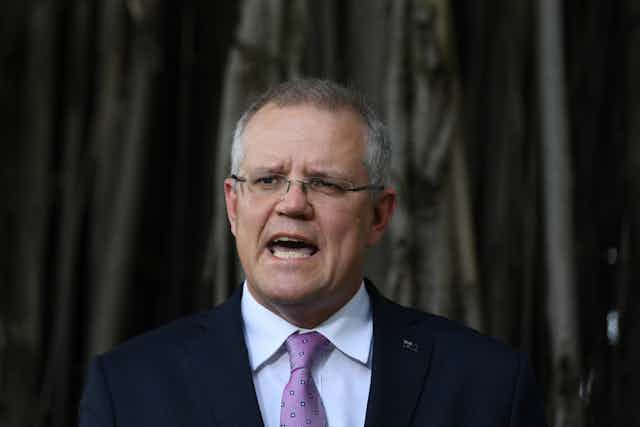Prime Minister Scott Morrison has dumped the government’s long-standing policy to raise the pension qualifying age to 70, saying it won’t increase beyond 67, when it gets there in 2023.
“I don’t think we need that measure any longer … and it is one of things I will be changing pretty quickly,” he said on morning television, as he moves to try to neutralise points of government vulnerability in the run up to the election.
Eligibility for the pension is currently at age 65 and six months, and will rise by six months every two years until it reaches 67 in 2023. This extension was brought in by Labor.
The now-abandoned Coalition policy to go to 70 dates from the Abbott government’s 2014 budget and has been strongly opposed by the ALP, which argued it would particularly hit people in jobs requiring physical strength. The Coalition has never had the numbers to get the controversial plan through the Senate.
Under the 2014 announcement, from July 2025 the qualifying age would have risen from 67 years by six months every two years until July 2035 when it would have reached 70.
Morrison said he had consulted colleagues, and next week the cabinet would ratify the decision to abandon the policy.
“The pension age going to 70 – gone,” he told Nine.
In 2014, then-treasurer Joe Hockey said the government was going “to deliver a fairer system for the aged pension that is going to focus on the sustainability of the system with a reasonable quality of life. The aged pension expenditure today is currently more than we spend on defence”. Hockey said that “the aged pension needs to be a safety net by 2035, not a cargo net”.
Defending the 70-age eligibility Morrison said in 2015, “we’ve got to address the issues of the sustainability of the pension over time.That’s a long term reform”.
The medium-term cost of abandoning the pension measure is about $5 billion over a decade but won’t have an effect on the Budget forward estimates until 2022.

